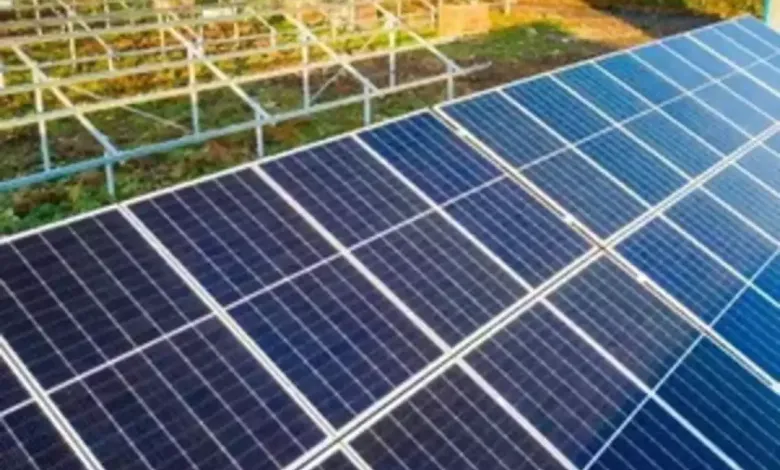
Union Minister of Steel and Heavy Industries, Shri H.D. Kumaraswamy, Releases India’s Green Steel Taxonomy – EQ
In Short : Union Minister of Steel and Heavy Industries, Shri H.D. Kumaraswamy, unveiled India’s Green Steel Taxonomy, a framework to promote sustainable steel production. The taxonomy sets benchmarks for reducing carbon emissions, enhancing energy efficiency, and adopting renewable energy in steel manufacturing. This initiative aims to align the industry with India’s climate goals and global sustainability standards.
In Detail : India is committed to decarbonise the steel sector in alignment with net-zero emission intensity target by 2070.To mark this, as a historic milestone in India’s journey towards low-emission steel, Shri H D Kumaraswamy, Union Minister of Steel & Heavy Industries, unveiled the Taxonomy of Green Steel for India during an event held at Vigyan Bhavan, on 12th December 2024 in the presence of Shri Bhupathi Raju Srinivasa Varma, Minister of State for Steel and Heavy Industries, Officers of Steel Ministry, representatives from other concerned Ministries, CPSEs, Steel industry players, Think Tanks, Academia and some foreign representatives in India including a delegation of European Union. Globally, there is no commonly accepted definition of green steel; India is the first nation to release the Taxonomy of Green Steel.
Shri H D Kumaraswamy, Union Minister of Steel expressed that the release of the Green Steel Taxonomy for India marks not only a significant milestone for the Ministry of Steel but also for our collective mission of transitioning toward a low-carbon economy. The release of the Taxonomy of Green Steel marks a crucial step in advancing the National Mission on Green Steel.
Shri Bhupathi Raju Srinivasa Varma, Minister of State for Steel and Heavy Industries, said the launch of the Green Steel Taxonomy represents a transformative framework in steel production that will help define green steel, foster innovation, and create a market for low-carbon products in India.
Secretary Steel Shri. Sandeep Poundrik highlighted that the adoption of Taxonomy of the Green Steel is not an option, it is a mandate to adopt this towards achieving the environmental sustainability target. This will be challenging for the Indian steel sector. However, the Ministry, with the help of all the industry stakeholders, will achieve the taxonomy of green steel to reduce the emission intensity of 2.2 tCO2 per tonne by 2030, ensuring global competitiveness and continued growth.
The salient features of green steel taxonomy –
- “Green Steel” shall be defined in terms of percentage greenness of the steel, which is produced from the steel plant with CO2 equivalent emission intensity less than 2.2 tonnes of CO2e per tonne of finished steel (tfs). The greenness of the steel shall be expressed as a percentage, based on how much the steel plant’s emission intensity is lower compared to the 2.2 t-CO2e/tfs threshold.
- Based on the greenness, the Green steel shall be rated as follows:
– Five-star green-rated steel: Steel with emission intensity lower than 1.6 t-CO2e/tfs.
– Four-star green-rated steel: Steel with emission intensity between 1.6 and 2.0 t-CO2e/tfs.
– Three-star green-rated steel: Steel with emission intensity between 2.0 and 2.2 t-CO2e/tfs.
Steel with emission intensity higher than 2.2 t-CO2e/tfs shall not be eligible for green rating. - The threshold limit for defining the star rating of Green Steel shall be reviewed every three years.
- The scope of emissions shall include Scope 1, Scope 2, and limited Scope 3, up to finished steel production. Scope 3 emissions shall include agglomeration (including sintering, pellet making, coke making), beneficiation, and embodied emissions in purchased raw materials and intermediary products, but shall not include upstream mining, downstream emissions and transportation emissions, both within and outside the gates of a steel plant.
- The National Institute of Secondary Steel Technology (NISST) shall serve as the nodal agency for measurement, reporting, and verification (MRV) as well as for issuing the greenness certificates and star ratings for the steel.
- The certificate shall be issued on yearly basis (financial year). In case the steel plants opt for MRV more frequently, then the certificate may be issued more than once in a year as per the requirement.
In addition to the release of taxonomy, stakeholder consultation on draft National Mission on Green Steel (NMGS) and draft Green Steel Public Procurement Policy (GSPPP) was also conducted during the event. The Ministry has assured that the suggestions and inputs received from stakeholders will be reviewed and integrated in finalising the NMGS and GSPPP.
The Ministry of Steel remains steadfast in its commitment to sustainability and innovation. India’s steel industry is poised to play a transformative role in shaping the nation’s future together with the collaboration and support of all industry players.
The event concluded with a vote of thanks by Smt. Neha Verma, Director, Ministry of Steel.













